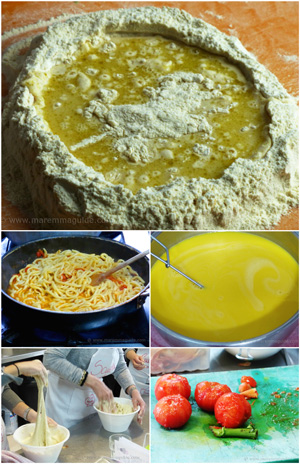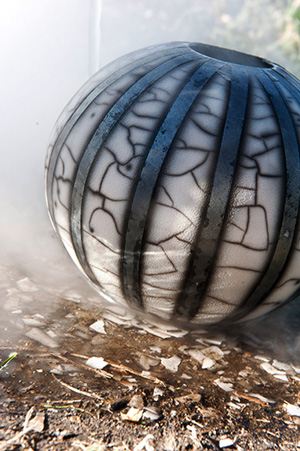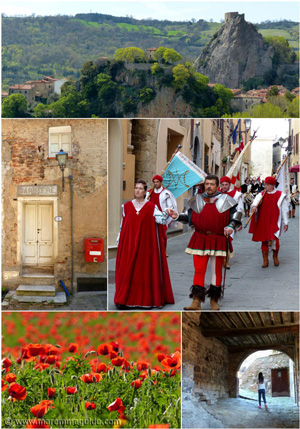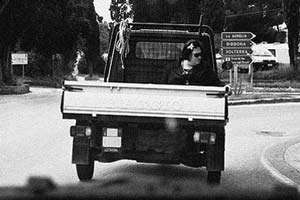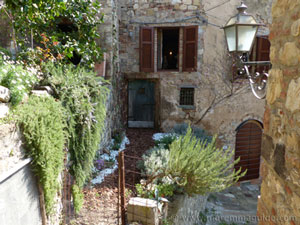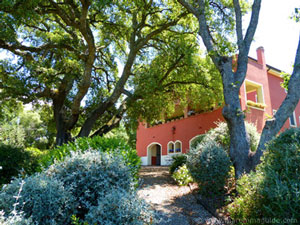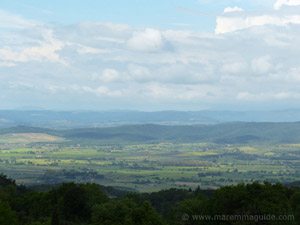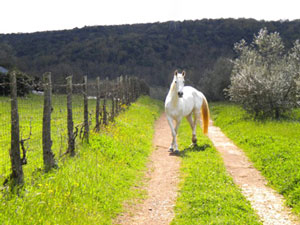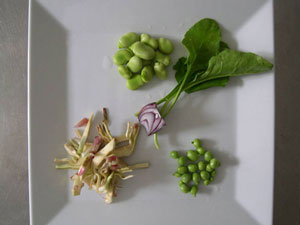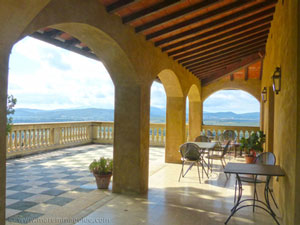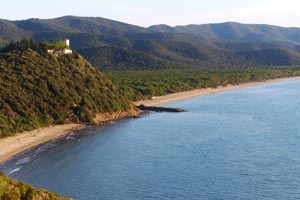The Ambrogio Lorenzetti in Maremma exhibition
the discovery of a 14th century storyteller
Ambrogio Lorenzetti: an awe-inspiring 14th century storyteller in Maremma Tuscany.
Religious art isn't everyone's cup of tea nor a motive for many to make a special trip, I know. But the paintings of this Renaissance artist will have you staring, over and over again. Discovering detail after detail amongst the opulent shimmer of silver and gold. Details that together tell the story he wanted inquisitive eyes to know.

When a major Ambrogio Lorenzetti exhibition in the city of Siena comes to Maremma - home to one of it's adored centrepieces - to my home town of Massa Marittima. That is big news.
So when the invitation came to attend the inauguration of this local exhibition I jumped at the chance. Especially as I had missed seeing it in Siena. And then went back again a few days later, without the dignitaries and crowd this time.
And found myself falling ever deeper into the paintings. Ambrogio Lorenzetti's storytelling is in his chosen details. Detail after tiny detail - at first and even second glance - but there nonetheless. Ready and waiting for inquisitive eyes to look beyond the opulent shimmers of silver and gold.

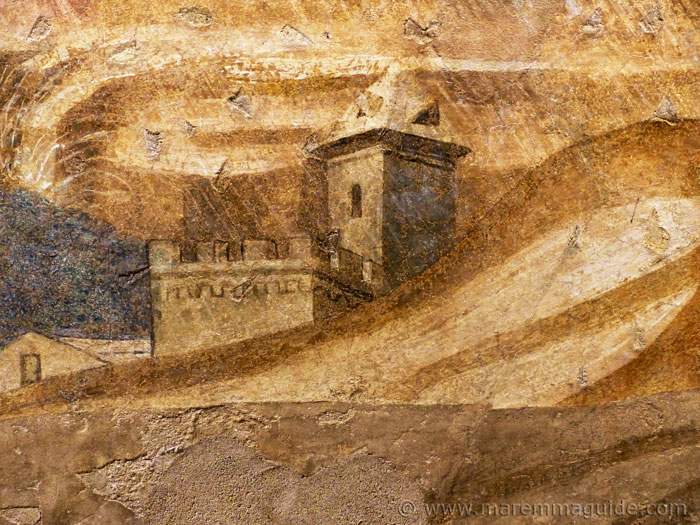
Ambrogio Lorenzetti's return to Maremma
Admittedly, this "Ambrogio Lorenzetti in Maremma" exhibition in the Complesso Museale di San Pietro All'Orto in Massa Marittima isn't the whole of the exhibition that drew thousands of people in Siena. But it is, nonetheless, magnificent and splendid.
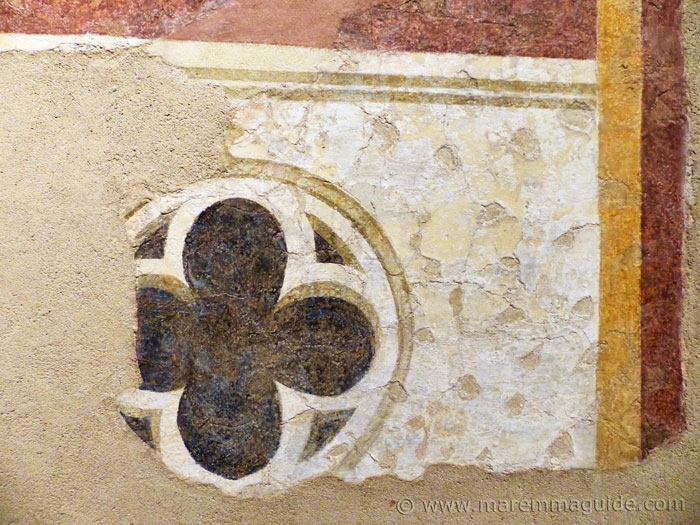
And it brings him back to where he painted during the middle part of his life. Following a trail across the hill towns of the metalliferous hills of Maremma towards Siena. First funded by the rich oblate, Ristoro da Selvatella, of the nearby San Galgano Abbey, he painted in Massa Marittima. And then by the monies of Siena's Signori Nove, in Roccalbegna.

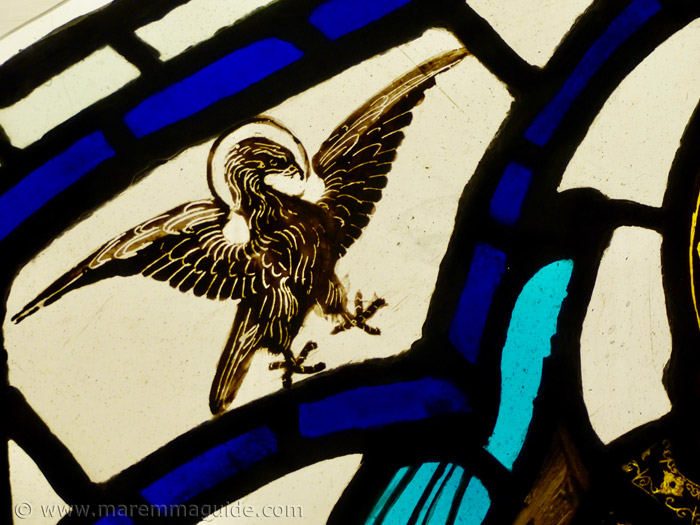
Madonna and child and saints Cecilia, Peter, Paul, and Michael the archangel
Saint Cecilia from the "Madonna col Bambino e i santi Ceceila, Pietro, Paolo e Michele arcangelo". From the church of San Pietro in Castelvecchio.
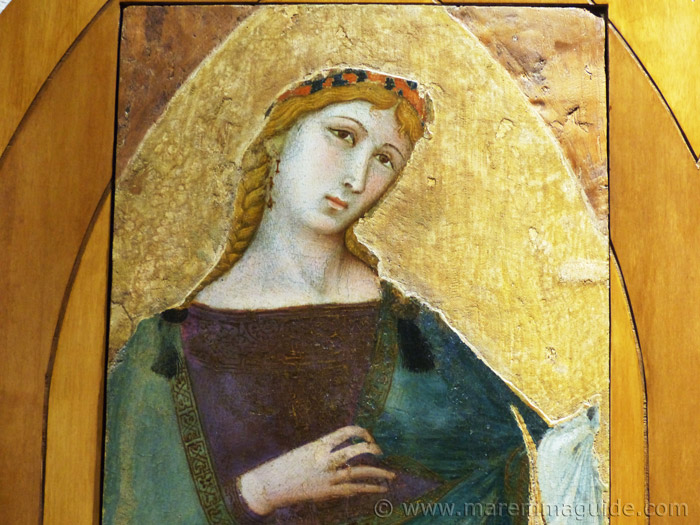
The Madonna and red-haired child in the centre panel. Another wonderful example of Lorenzetti's style of depicting the Madonna and child in a very tender, natural and familiar manner.

Saint Michael the Archangel.
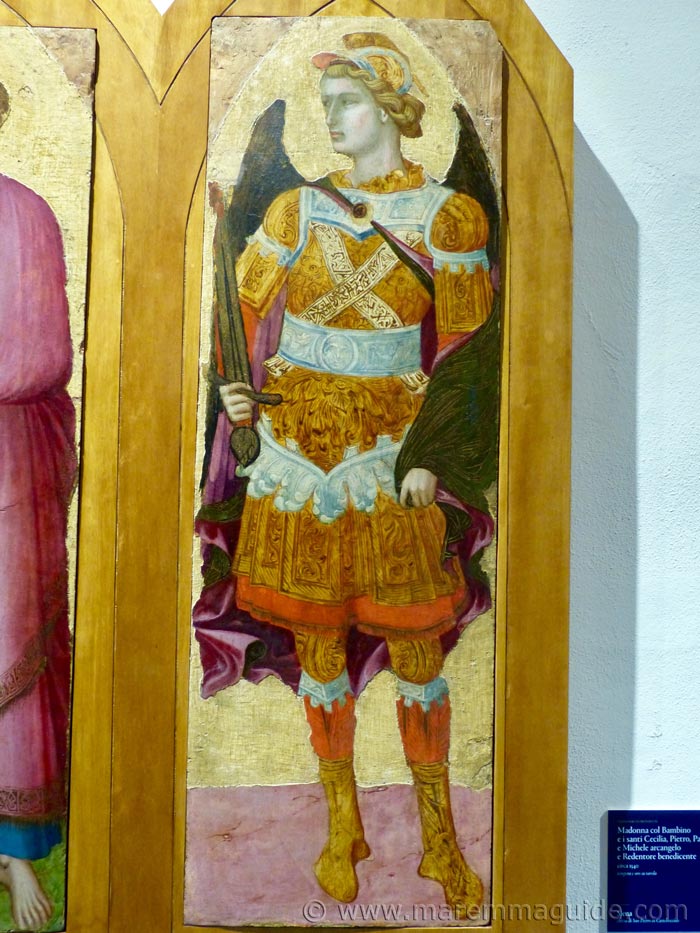
Saint Benedict, Saint Catherine of Alexandria, Saint Magdalene and Saint Francis
"San Benedetto, Santa Caterina d'Alessandria, Santa Maddalena and San Francesco", within the "cuspidi". With "San Pietro, San Giovanni evangelista, San Giovanni Battista e San Paolo" - St. Peter, St. John the Evangelist, St. John the Baptist and St. Paul - within the "triboli".
Dated around 1335. Tempera and oil on wood panel. From the Museo dell"Opera del Duomo, Siena.
The inscription reads SANTA <CA>TERI<NA>.

Detail of Saint Caterina d'Alessandria.
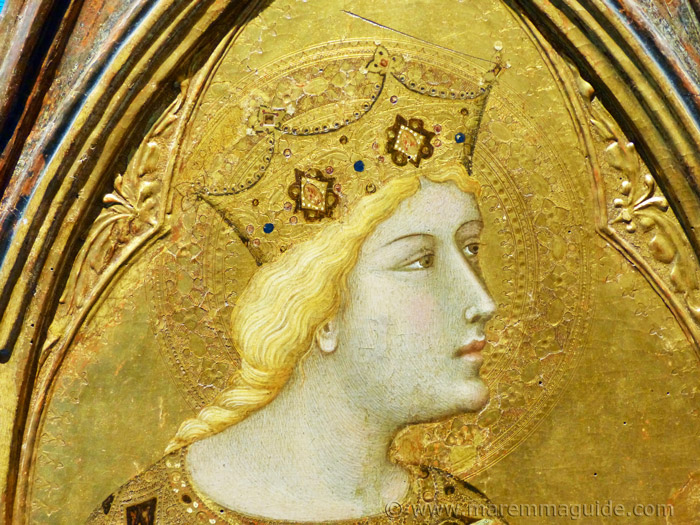

Detail of Saint Magdalene.

King Solomon
The "Re Salomone", from the Museo Diocesano in Siena.

Ambrogio Lorenzetti's Madonna and Child
This is Lorenzetti's Madonna and child with Saints Peter and Paul from the church of Santi Pietro e Paolo in Roccalbegna.
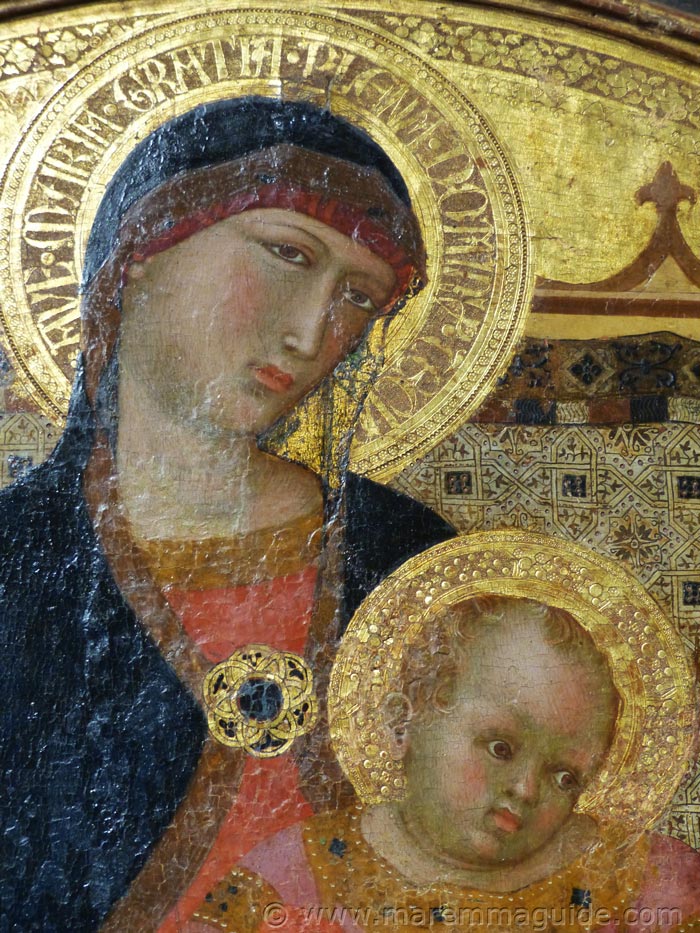
The Allegory of Redemption
The "Allegoria della Redenzione" painted about 1338 tempera and gold on wooden panel. It's home is the Pinacoteca Nazionale in Siena.

Detail of one of the three grim reapers within the scene.

The dark corner with the reaper at his work.

The castle on the hill; safe from the action going on below.

The Maesta, 1335
Ambrogio Lorenzetti's "The Maesta" is a rather special work. And not just because it looks stunning. From any angle and at any distance.
His early and heavy use of allegory is in full play. Predating his most famous allegorical works that sit in the Palazzo Pubblico in Siena. The Allegory of Good and Bad Government. And its Effects on Town and country. One of the undisputed masterpieces of early Renaissance secular painting.
As is his unique human and naturalistic painting style. A style that placed him at the leading edge of of a secular movement in Sienese art at the time.
His depiction of the bond between mother and child is intense. Not only the lack of physical separation between the two: their connection is cheek to cheek. But their exchange of gazes and the way baby Jesus is clasping her dress.
It was painted in gold, silver, lapis lazzuli, and tempera on a wooden panel of "pioppo" - poplar.
The inscription reads, "FIDES, SPES, CARITAS" - FAITH, HOPE, CHARITY.
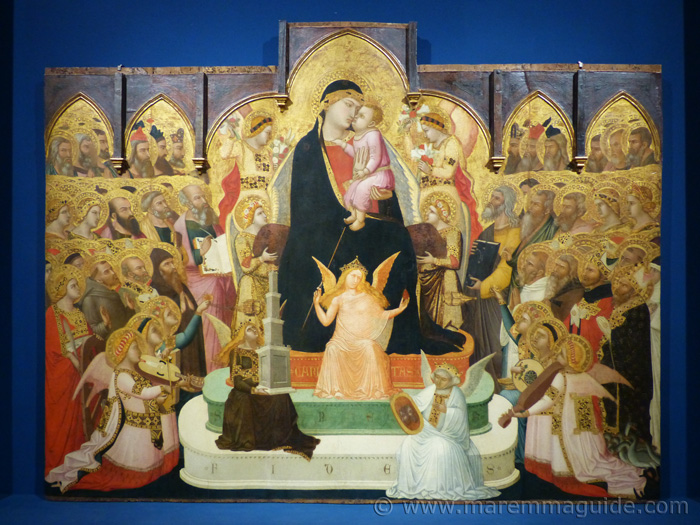 "Madonna col Bambino in trono con Virtu teologali, angeli musicanti, santi e profeti" - Madonna and Child enthroned with theological Virtu, musician angels, saints and prophets, from the Complesso Museale di San Pietro all'Orto museum in Massa Marittima. Dated from 1335 - 1336.
"Madonna col Bambino in trono con Virtu teologali, angeli musicanti, santi e profeti" - Madonna and Child enthroned with theological Virtu, musician angels, saints and prophets, from the Complesso Museale di San Pietro all'Orto museum in Massa Marittima. Dated from 1335 - 1336.
The painting was lost for centuries.
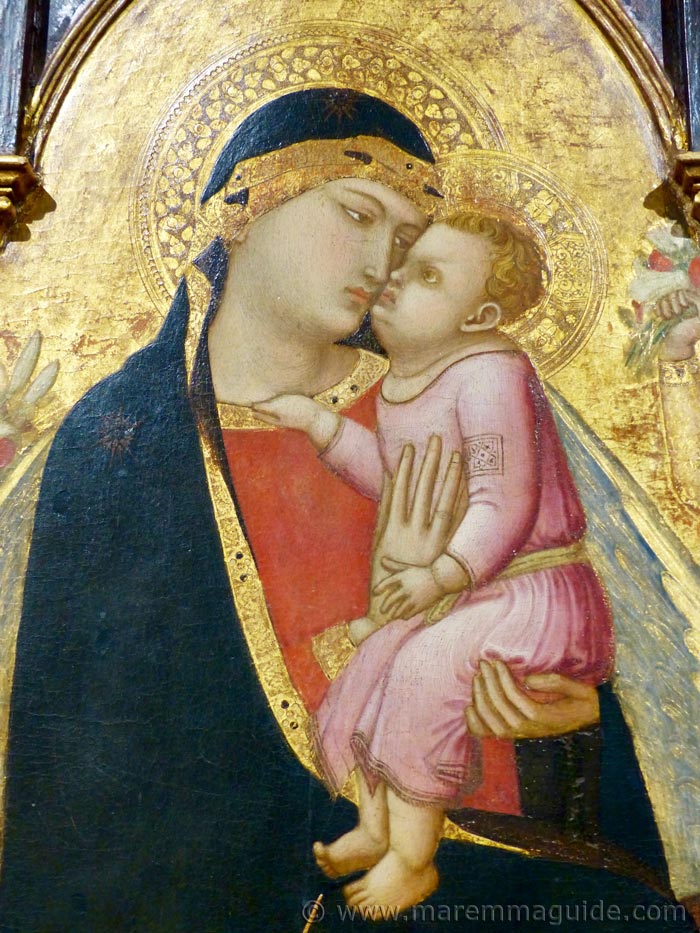
Found in 1867 in the ceiling of the Convent of Sant'Agostino. Divided into five parts in a coal store. An intuition that it was the lost work by Ambrogio Lorenzetti was only finally confirmed after 30 years of study.
The town of Massa Marittima was joyous.
As it represented tangible evidence, after centuries of uncertainty, that one of the greatest Italian fourteenth-century painters had really worked in Massa Marittima. In the wake of other Sienese masters of the caliber of Duccio and Goro di Gregorio

Nearly every one of the "gems" that were attached to the halos and have been lost/stolen. But you can see the indentations in the painting marking where they would have been.

The Theological Virtue, Carità - CHARITY.
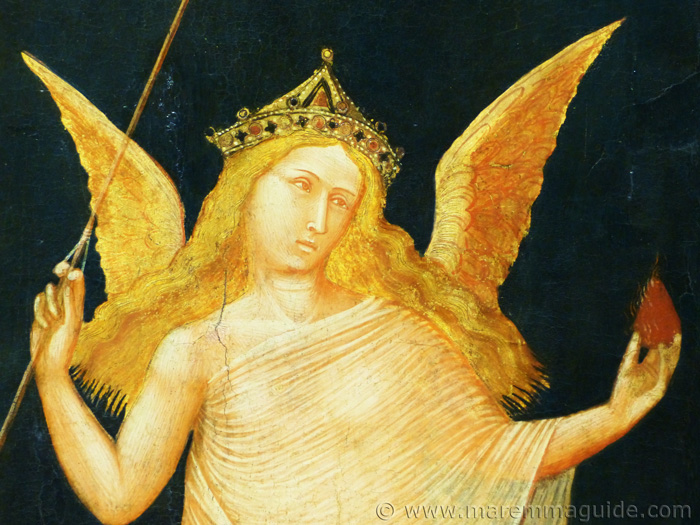
The Theological Virtue Fede, FAITH.
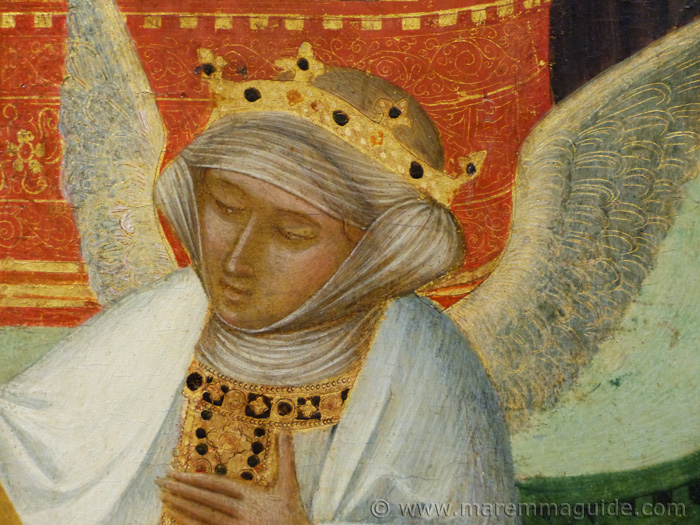


Angel holding flowers.

Not just any angels
If I understood the art historian correctly, these angels are unique. Being the first of their kind to be depicted with musical instruments (and incense burners). The same instruments have also been reproduced to the exact measurements and details by a Massa Marittima artisan and are also on display alongside the painting.
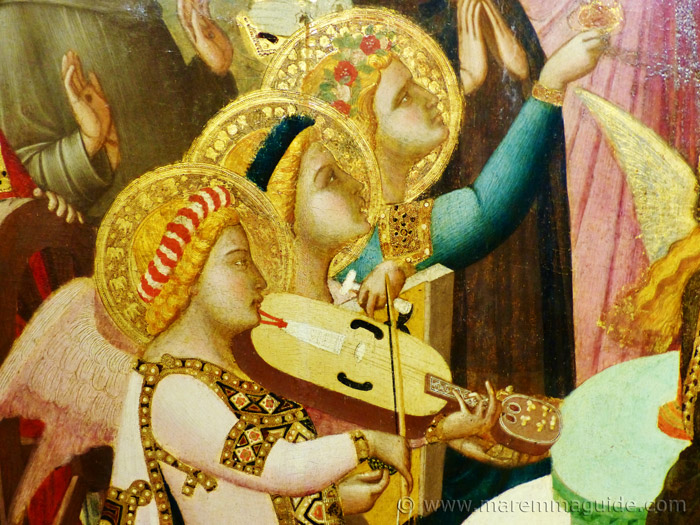 `
`
The beautiful, golden-haired Theological Virtue, la Speranza - HOPE. Elevating the church up to heaven. Symbolised by the heavy tower that she is holding.
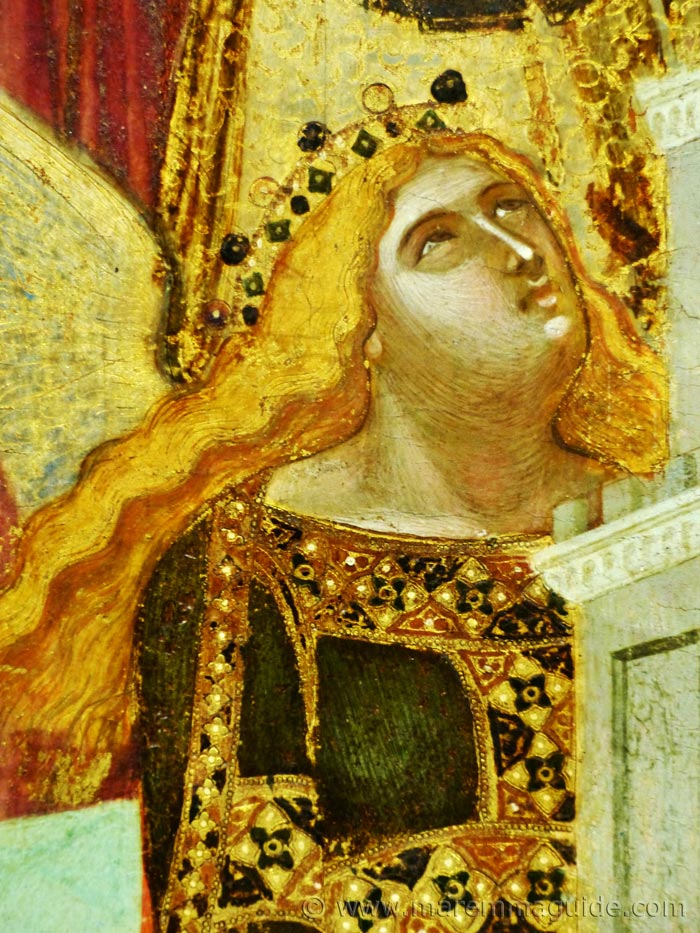
Prophets, Saints, Patriarchs, Angels, and the Theological Virtue Faith, all packed into the scene.


Every time I look at this painting I see more details that together tell the story that Ambrogio Lorenzetti wanted to tell.

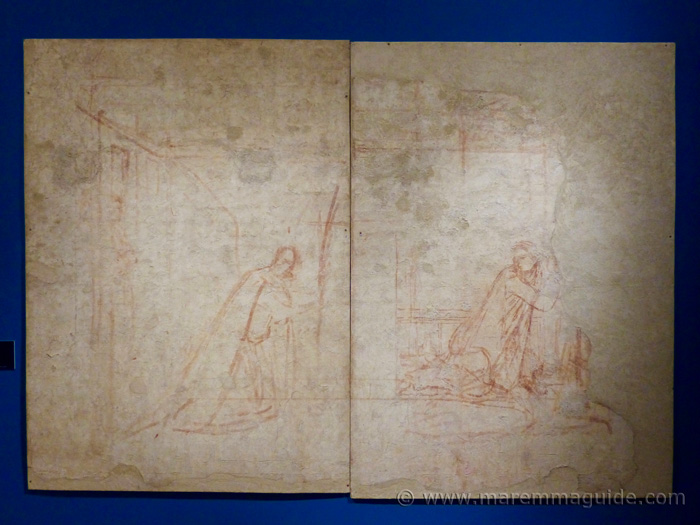
Tickets and opening times
The Ambrogio Lorenzetti in Maremma exhibition is open from 2 June 2018 to 16 September 2018.
Between 2 - 30 June 2018 it is open from Tuesday to Sunday inclusive, from 10:00 to 13:00 and 16:00 to 19:00.
From 1 July to 16 September 2018 it is open every day from 10:00 to 13:00 and 16:00 to 20:00.
Full price tickets cost Euro 7,00. Reduced rate Euro 5,00.
If you happen to be staying in holiday accommodation in Massa Marittima or it's immediate surrounds (within the Comune di Massa Marittima), or have purchased a ticket to one of this year's Lirica in Piazza operas, then you'll be entitled to the reduced entrance fee.
What else do you need as a prompt to take a peek?
A PS. for those of you with youngsters/teenagers
Whilst you are there, the Museo d'Arte d'Sacra is well worth a look around too.
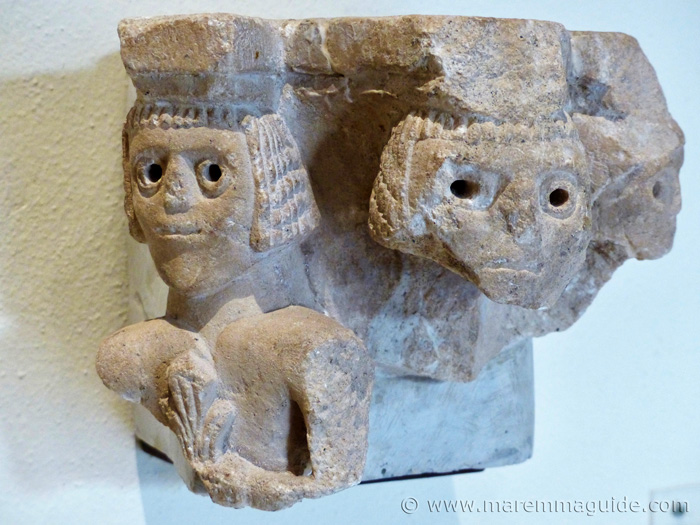
But a word to the wise: your younger ones won't be impressed by the experience. So, once you have seen the Ambrogio Lorenzetti paintings, send them off to find the local Saint's finger.
That should keep them amused to give you at least a few minutes peace to take a look around.
A second word of warning, of sorts. With the aim of keeping the place quite and serene! Tell them before they set off that, apart from the security camera's, there are sensors in place in front of the exhibits. So if they step too close the alarms will go off.
Actually, on second thoughts. Don't. I suspect that would only encourage mischief!
Explore some more...



